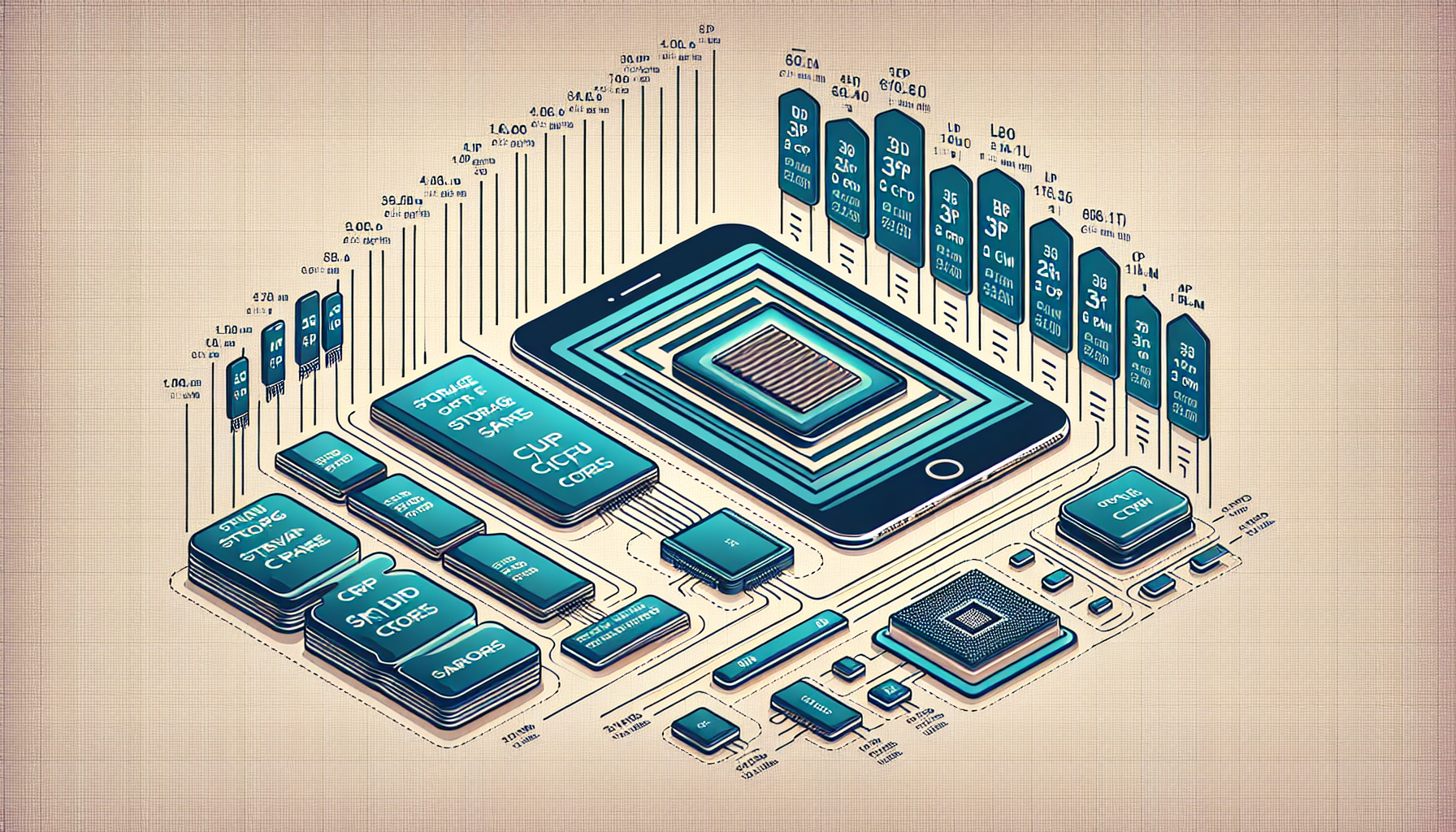 ## Decoding the M4 iPad Pro: A Breakdown of CPU Cores, RAM, and Storage Space
## Decoding the M4 iPad Pro: A Breakdown of CPU Cores, RAM, and Storage Space
The M4 iPad Pro from Apple has been causing quite a stir in the technology sector. The device’s storage capacity determines its CPU cores and RAM, a characteristic that has sparked a lot of curiosity among tech aficionados.
The Different Versions of the M4 Chip
At the iPad Pro event, Apple unveiled the M4 chip, stating that it can have “up to” four high-performance CPU cores. This statement implies there is a less powerful version of the chip that does not have as many CPU cores. The technical specifications page for the new iPad Pro provides further clarity: iPad Pros with 256GB or 512GB of storage leverages a version of the M4 with three high-performance CPU cores and six smaller efficiency cores. Only the variants with 1TB and 2TB of storage feature an M4 chip with all four high-performance CPU cores activated.
The interplay between RAM and Storage Space
The 256GB and 512GB models are equipped with 8GB of RAM, while the 1TB and 2TB variants come with a memory capacity of 16GB. Interestingly, Apple’s online store does not make it explicit that increasing storage inadvertently enhances your CPU and RAM components.
However, all M4 iPad Pros possess a completely activated 10-core GPU, 16-core Neural Engine, and 120GB/s of memory bandwidth, a feature consistent with all M2 iPad Air models, which also come with the fully operational M2 chip and 8GB of RAM.
Comparing the Upgrade Process: iPads vs Macs
Apple’s upgrade protocol for iPads is distinctly different from its approach for Macs. Unlike Macs, iPads do not have the flexibility of build-to-order configurations, where one can upgrade individual specifications without enhancing everything at once.
The Progression of iPad Pro’s RAM
This coupling of RAM with the storage capacity isn’t novel. The 2018 iPad Pro featuring the Apple A12X chip included 4GB of RAM in the basic models and 6GB of RAM in the 1TB variant. The M1 and M2 iPad Pros came with 8GB of RAM in their more affordable versions and 16GB in the 1TB and 2TB variants. However, this marks the first occasion where Apple has linked the iPad’s CPU performance to its storage space.
What’s Apple’s Reason
Apple’s choice to link CPU performance to storage capacity is not solely a marketing ploy. Silicon chips often have minor imperfections, especially those produced using cutting-edge manufacturing techniques like the second-generation 3 nm process used for the M4. The sale of a partially disabled version of the chip helps Apple utilize flawed silicon dies rather than waste them, a practice known as ‘binning’.
Additional Upgrade Options
The 1TB and 2TB iPad Pros are the exclusive models that can be optionally fitted with Apple’s “nano-texture glass,” giving your screen a matte finish instead of the glossy, glass look. The nano-texture enhancement is an additional expense of $100 alongside the $600 required to upgrade the storage and other parts.
Conclusion
The M4 iPad Pro is a robust device, its CPU cores and RAM functioning based on its storage capacity. While it may seem like a sales tactic, it also enables Apple to utilize imperfect silicon dies. With extra upgrade options available for larger storage models, users have a wide selection of customizations for their devices.
Questions and Answers
Q: Which factor governs the quantity of CPU cores and RAM in the M4 iPad Pro?
A: The storage capacity of the M4 iPad Pro governs the quantity of its CPU cores and RAM.
Q: How do the low-end and high-end models of the M4 iPad Pro differ?
A: Low-end models (256GB or 512GB of storage) harness a version of the M4 with three high-performance CPU cores and six smaller efficiency cores, and are equipped with 8GB of RAM. High-end models (1TB and 2TB of storage) possess an M4 with all four high-performance CPU cores functioning and come with 16GB of RAM.
Q: Can you explain “binning”?
A: Binning is a methodology through which companies like Apple sell a partially functional version of a chip, thereby utilizing flawed silicon dies rather than wasting them.
Q: Can I upgrade individual specifications on the M4 iPad Pro akin to a Mac?
A: No, iPads, unlike Macs, do not provide the flexibility of build-to-order configurations, preventing you from upgrading individual specifications without enhancing everything concurrently.
Q: Can you elucidate the “nano-texture glass” upgrade?
A: The “nano-texture glass” is an enhancement available exclusively for the 1TB and 2TB iPad Pros that gives your screen a matte finish instead of a glossy, glassy one. This upgrade comes at an additional cost of $100 besides the upgrade cost for storage and other components.